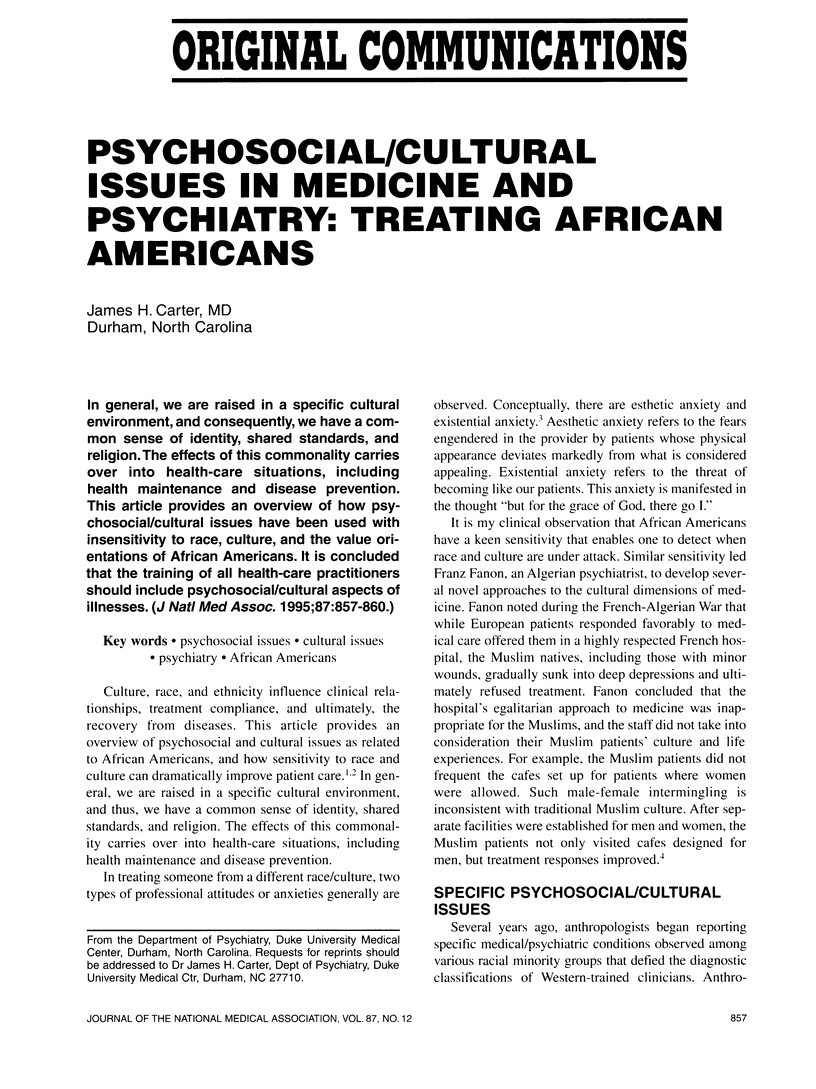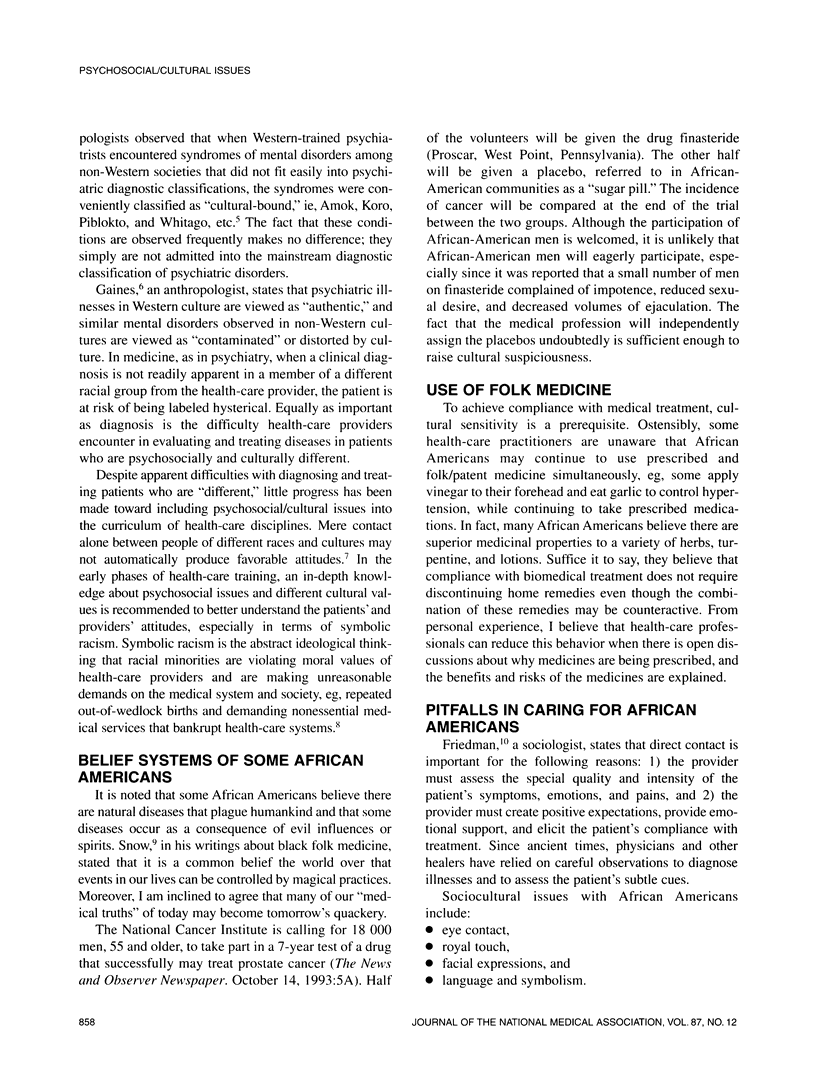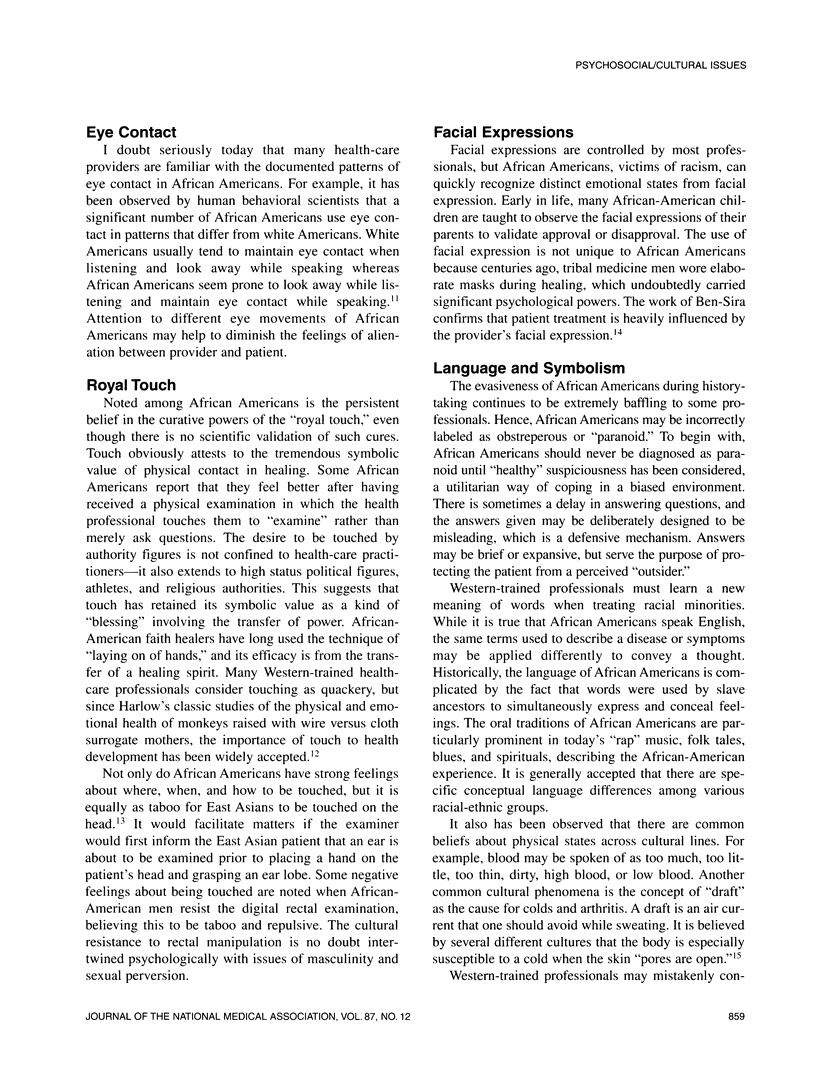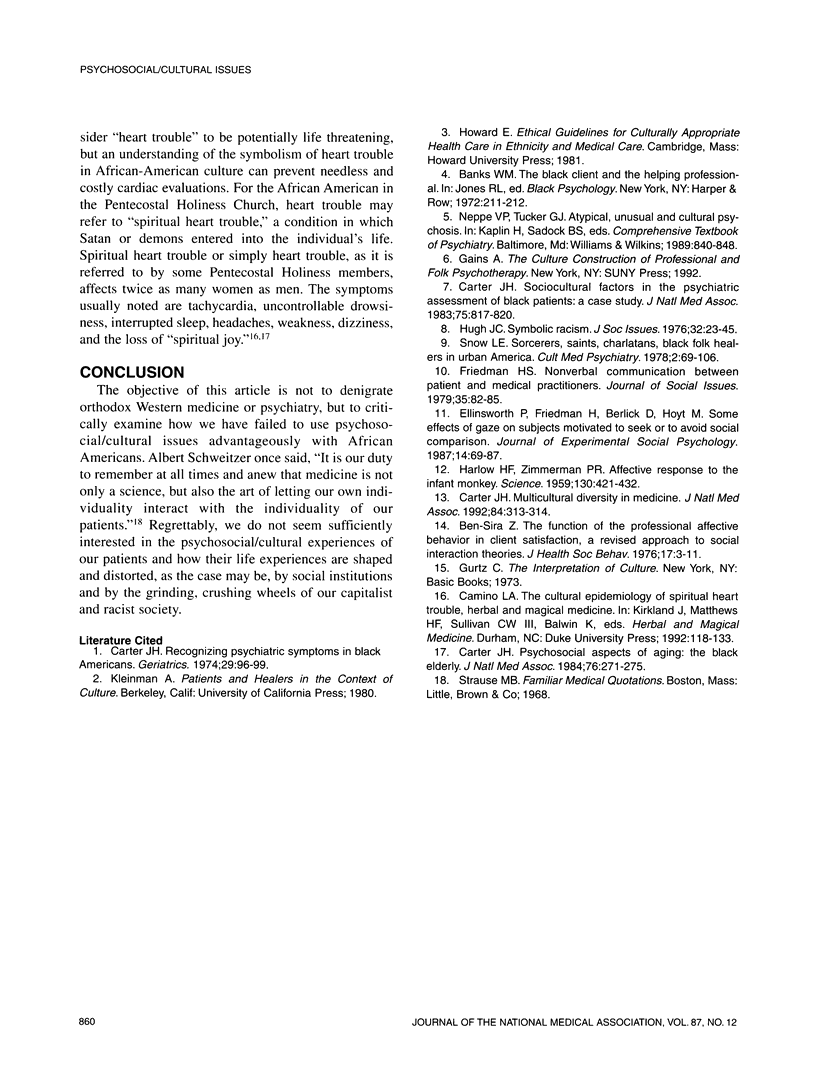Abstract
In general, we are raised in a specific cultural environment, and consequently, we have a common sense of identity, shared standards, and religion. The effects of this commonality carries over into health-care situations, including health maintenance and disease prevention. This article provides an overview of how psychosocial/cultural issues have been used with insensitivity to race, culture, and the value orientations of African Americans. It is concluded that the training of all health-care practitioners should include psychosocial/cultural aspects of illnesses.
Full text
PDF



Selected References
These references are in PubMed. This may not be the complete list of references from this article.
- Ben-Sira Z. The function of the professional's affective behavior in client satisfaction: a revised approach to social interaction theory. J Health Soc Behav. 1976 Mar;17(1):3–11. [PubMed] [Google Scholar]
- Carter J. H. Psychosocial aspects of aging: the black elderly. J Natl Med Assoc. 1984 Mar;76(3):271–275. [PMC free article] [PubMed] [Google Scholar]
- Carter J. H. Recognizing psychiatric symptoms in black Americans. Geriatrics. 1974 Nov;29(11):95–99. [PubMed] [Google Scholar]
- HARLOW H. F., ZIMMERMANN R. R. Affectional responses in the infant monkey; orphaned baby monkeys develop a strong and persistent attachment to inanimate surrogate mothers. Science. 1959 Aug 21;130(3373):421–432. doi: 10.1126/science.130.3373.421. [DOI] [PubMed] [Google Scholar]
- Shabazz C. D., Carter J. H. Multicultural diversity in medicine. J Natl Med Assoc. 1992 Apr;84(4):313–314. [PMC free article] [PubMed] [Google Scholar]


